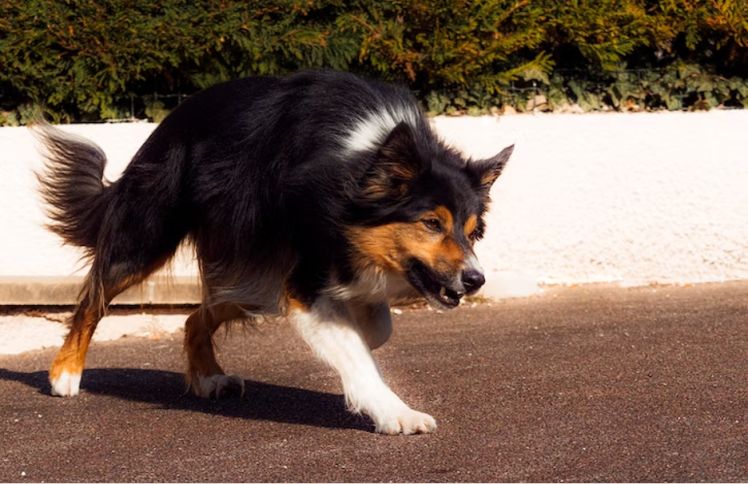A dog is often considered man’s best friend, bringing joy, companionship, and unconditional love into our lives. However, there are rare instances when dogs may exhibit aggressive behavior, leading to a distressing and traumatic experience for those involved. A dog attack can leave physical and emotional scars, impacting not only the victim but also their loved ones. Coping with the aftermath of such an incident is essential for healing and moving forward. Whether you are the victim, a witness, or a concerned friend or family member, understanding these steps can be instrumental in providing the necessary support during this difficult time.
Connect with a verified veterinarian in minutes. Licensed vets are available 24/7 to answer your questions. No need to worry about your furry family member.

Seek Medical Attention and Report the Incident
The immediate priority after a dog attack is to seek medical attention for any injuries sustained. Even seemingly minor wounds can lead to serious infections if not properly treated. After receiving medical care, it is essential to hire a dog bite lawyer and report the incident to the relevant authorities, such as animal control or the local police. Reporting the attack helps create a record of the incident and can contribute to preventing similar incidents in the future.
Process Your Emotions and Reach Out for Support
Experiencing a dog attack can evoke a range of emotions, including fear, anxiety, anger, and even guilt. It is essential to give yourself time to process these feelings and not bottle them up. Reach out to friends, family, or a counselor who can provide a supportive and empathetic ear. Speaking about the experience can be cathartic and can also help in gaining perspective and coping with the emotional aftermath.

Review symptoms, medications & behavior to keep your pets healthy with a Vet Online in just minutes.
Ask a Vet Live NowUnderstand Dog Behavior and Triggers
Educating yourself about dog behavior and recognizing common triggers for aggressive behavior can be empowering. It enables you to be more aware of your surroundings and take precautions when interacting with dogs in the future. Knowledge about dog body language and warning signs of potential aggression can help prevent similar incidents from occurring.
- Recognize Fear and Aggression: Dogs may exhibit aggressive behavior due to fear, territoriality, or resource guarding. Understanding the difference between fear-based aggression and territorial aggression, for example, can help you respond appropriately and avoid potential confrontations.
- Approach with Caution: When encountering unfamiliar dogs, always approach them with caution. Allow the dog to approach you first, and avoid making sudden movements or direct eye contact, as these actions can be perceived as threatening.
- Respect Personal Space: Dogs, like humans, have personal boundaries. Respecting a dog’s personal space and not attempting to touch or interact with them without the owner’s permission can help reduce the risk of an aggressive response.
- Educate Children and Others: Teach children and others in your community about dog safety and proper etiquette when approaching or interacting with dogs. Encourage them to ask for the owner’s permission before petting a dog and to avoid disturbing dogs that are eating or sleeping.
Consult with Legal Professionals
Depending on the severity of the dog attack, you may need to seek legal advice to understand your rights and potential courses of action. If the dog’s owner was negligent in controlling their pet or if there are other liable parties involved, you may be entitled to compensation for medical expenses, emotional distress, and other damages. Consult with experienced personal injury attorneys who can guide you through the legal process and advocate for your rights.
Join Support Groups and Seek Therapy
In the aftermath of a dog attack, it is common to feel isolated and overwhelmed. Joining support groups specifically tailored for dog attack survivors can provide a sense of community and understanding. Connecting with others who have experienced similar traumas can offer valuable insights and coping strategies. Additionally, consider seeking professional therapy or counseling to address any lingering psychological effects. Therapists can offer specialized support to help you process the trauma, manage anxiety, and develop healthy coping mechanisms.
- Share Experiences and Empathy: Support groups for dog attack survivors create a safe space to share experiences without judgment. Interacting with others who have gone through similar ordeals can foster empathy and validation, helping you realize that you are not alone in your journey toward healing.
- Learn Coping Strategies: Survivors of dog attacks may grapple with post-traumatic stress, anxiety, or even phobias related to dogs. Therapy can equip you with effective coping strategies tailored to your individual needs, enabling you to manage triggers and emotions in a healthy and constructive manner.
- Heal and Rebuild Trust: Therapy provides a structured environment for addressing the emotional impact of the attack. Through guided discussions and techniques, you can work through feelings of fear and distress, allowing you to rebuild trust in yourself and others, leading to a gradual reduction of the anxiety associated with dog encounters.
Rebuild Confidence and Trust
A dog attack can severely impact your sense of safety and trust in animals, especially dogs. As part of the healing process, it’s essential to rebuild your confidence and trust. Start by gradually exposing yourself to friendly and well-behaved dogs in controlled environments. Consider participating in dog training classes or supervised interactions to help you become more comfortable around dogs. Patience and perseverance are key, as healing may take time, but reclaiming your confidence can lead to a better quality of life.
Communicate with the Dog Owner
In cases where you know the dog owner personally, it may be beneficial to have an open and honest conversation about the incident. Express your feelings and concerns calmly and assertively, explaining the impact the attack had on you. While it can be challenging to confront the owner, addressing the situation can lead to greater awareness and responsible pet ownership. In some cases, the dog owner may not have been aware of their pet’s aggressive tendencies or may be willing to take corrective measures to prevent future incidents.

A dog attack can be a traumatic event, but with the right support and coping strategies, healing is possible. Seeking immediate medical attention, emotional support, and understanding dog behavior are crucial steps in the aftermath of such an incident. Consulting legal professionals and joining support groups can aid in navigating the complexities of the aftermath. Rebuilding confidence, communicating with the dog owner, and advocating for dog safety are empowering actions that contribute to personal healing and community awareness. Remember that healing takes time, and it’s essential to be patient and kind to yourself throughout the recovery process.
Connect with a verified veterinarian in minutes. Licensed vets are available 24/7 to answer your questions. No need to worry about your furry family member.

Tom
Tom has always loved to write since he was little - he wanted to be either a writer or a veterinary doctor, but he ended up being a professional writer while most of his works are based on animals. He was born in San Francisco but later moved to Texas to continue his job as a writer. He graduated from the University of San Francisco where he studied biotechnology. He is happily married and a soon to be father!
Review symptoms, medications & behavior to keep your pets healthy with a Vet Online in just minutes.
Ask a Vet Live Now
